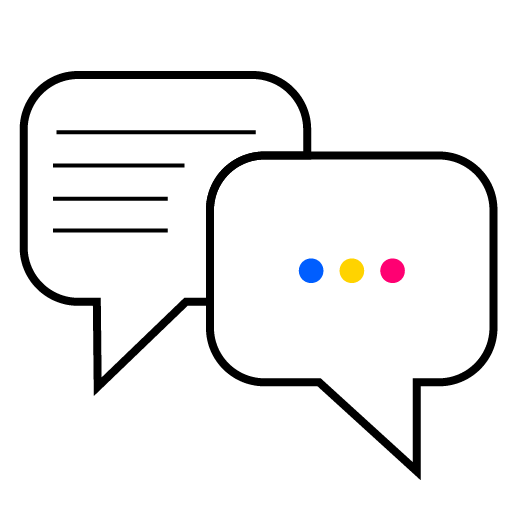Industry Knowledge
You and AI: The Rise of Self-Service Customer Service
Accurate and accessible self-service is an everyday requirement of good CX
Recently, I called customer support because of a defective product. Much to my surprise, the product support wasn’t available that day, so a representative from another team tried to help, but to no avail. My only resolution was to accept a callback from the product support team scheduled for the next day - three days have passed, and no one has reached out to me. It was a frustrating experience for what I considered a simple concern. The resolution took days, and inaccurate information further complicated the situation. What happens when customers are repeatedly met with similarly dissatisfactory service?
With almost everything available at a click of a button, customers expect breakneck speed and accuracy from the companies they choose to interact with. Self-service options are a great way to help your customers find answers to their challenges on their own time.
Why the need for self-service support?
In a research conducted by the Boston Consulting Group, customers aged 45 and below, who consider themselves tech-savvy, are not just satisfied with self-service support options but prefer them. This is no more evident today than customers' desire to access information about your products and services on their terms, 24 hours a day. Companies that know the importance of customer experience capitalize on this, while others still struggle.
Another notable shift has been the prominence of mobile search on cell phones and tablets and voice search on personal/home assistants and speakers. According to Statista research, mobile devices generated about 59% of global website traffic in the second quarter of 2022. That figure has not dipped below 50% since 2020.
In today’s on-demand economy, the patience exhibited by even your best, most loyal customers is near an all-time low. Slow and inefficient customer service creates angry customers, leading to lower employee morale, customer satisfaction, and effort scores.
What are examples of self-service customer support?

Frequently Asked Questions (FAQ) Pages

Community Forums

AI Chatbots

Knowledge Base Repositories
Self-help customer service channels require varying levels of investment but can be inexpensive yet effective ways to empower your customers to solve their issues without picking up the phone to contact a customer service representative. The more customer self-service outlets there are, the more efficient the process will be.
Discovering customer self-service benefits
Enhancing your self-service support options will lessen the burden on your employees and customer support representatives and improve your website’s ranking and authority score. A strategic and robust FAQ page can help attract new leads and boost your ranking in search engines.
Data generated from self-service support inquiries from your customers can be very valuable to organizations as it highlights issues in customer journeys, and these queries can be automatically tracked.
Broad searches using keywords or phrases can direct prospective customers to the FAQ pages of the companies. If they fall within the scope of their inquiry, they can serve as landing pages for anyone offering an answer. One of the best benefits of self service-technology is bridging knowledge gaps that newcomers may have about your industry and, thus, converting them into your customers. Go beyond the purpose to identify common challenges your customers have with your products or services. Let your FAQ page serve as someone’s introduction to the industry and shape their understanding of it.
Well-implemented self-service technology results in higher effectiveness and efficiency rates and will reduce costs in the long run. Plus, a secondary benefit of reduced strain on contact centers, human customer service representatives can focus and attend to more urgent and complicated matters that are more likely to require a human touch and extra empathy.
In addition to putting self-service customer support in place, investing in artificial intelligence and chatbot technology, which can be available 24/7, can significantly improve your organization’s productivity and efficiency. While the initial investment can be seen as a significant expenditure, over time, that cost will likely be lower than the hiring, training, salary, and other associated costs with human capital. Choosing a mix of support channels that leads to improved efficiency and reduced operating costs will depend highly on your organization's specific needs—and likely be at the forefront of every operational leader’s mind.
Incorporating more self-service technology elements will probably please the tech-savvy percentage of your customers and drive improvements to customer satisfaction or effort scores. High CSAT scores can help keep employees motivated to maintain high standards for themselves, creating a more productive and efficient workplace and further driving the positive feedback loop on performance. Beyond the gains in customer satisfaction — if well-implemented — self-service technology will improve operational efficiency and business intelligence, allowing for scaling without changes to headcount.
If your customers have on-demand access to complete and accurate information about self-service, then most of them will be happy not to speak with a customer service representative. The satisfaction that self-service technology brings the customer will lead to high CSAT scores, adding one more way to maintain a happy customer base.
 Empowering Customers Together
Empowering Customers Together
Self-service technology in an on-demand economy is no longer a nice-to-have luxury. It is a need, as highlighted by overall consumer trends and expectations set by consumers and customer experience consulting leaders alike. Luckily when implemented well, self-help customer service is a win-win for businesses as it results in a more efficient customer handling process while successfully managing the most relevant customer queries.
With TaskUs’ Consulting service line, we’re dedicated to the betterment of empowering customer operations while harnessing the power of technology and the human touch.
From implementing groundbreaking technology to taking care of our employees, we have tried and tested ways to improve not only the experience of our clients but also of their customers.

As the World’s Fastest Business Process Outsourcing Service Provider, as recognized by the Everest Group in their 2022 Top 50 report, we are responsible for providing the best possible solutions—from digital customer experience (CX) to CX consulting.
Business landscapes can change rapidly, with customer needs and requirements evolving simultaneously. This allows organizations to be in tune with their customers constantly, derive insights from their data, and use it to fix frequently encountered issues their customers most for continuous improvement.
Supplying digital users with intuitive self-service support tools and investing in their experience will yield dividends in the long term and foster loyalty. Giving people the power to help themselves is one of the significant throughways to promote a sustainable customer journey.
- 2^Share of Website Traffic Coming from Mobile Devices
- 3^Why Your FAQ Page is Your Best Method to Drive New Leads
References
We exist to empower people to deliver Ridiculously Good innovation to the world’s best companies.
Services









